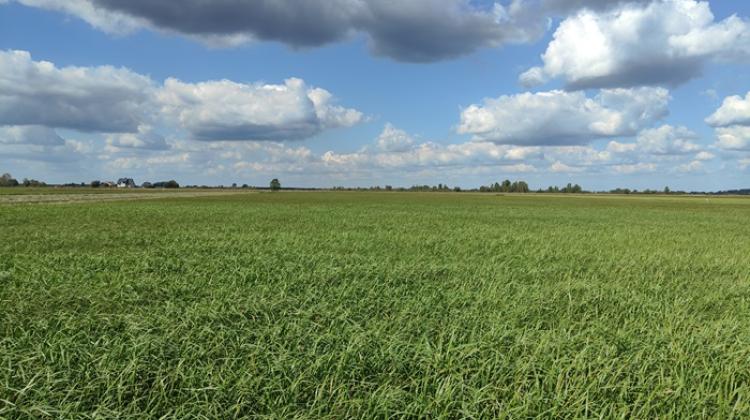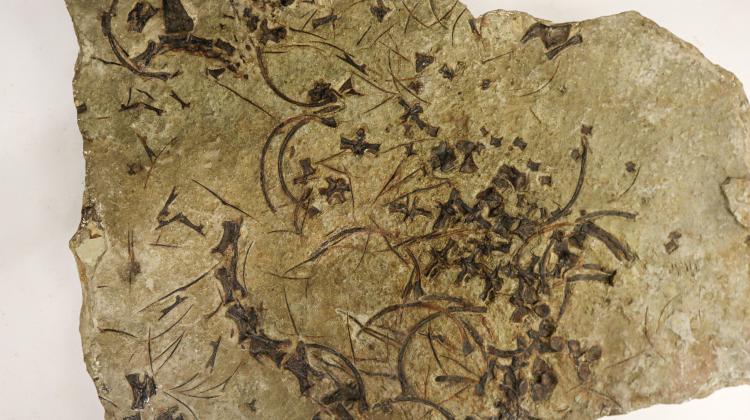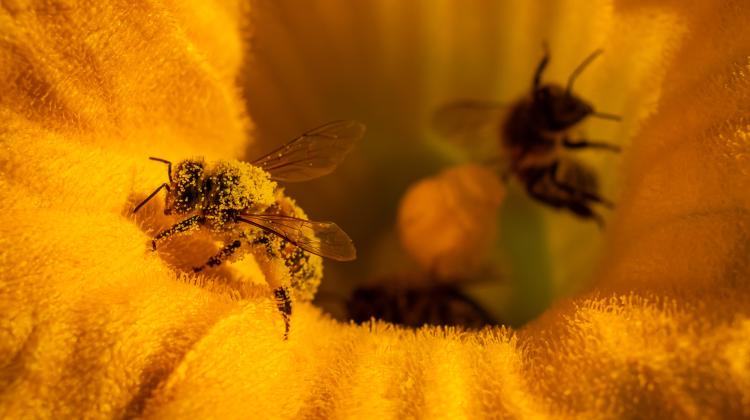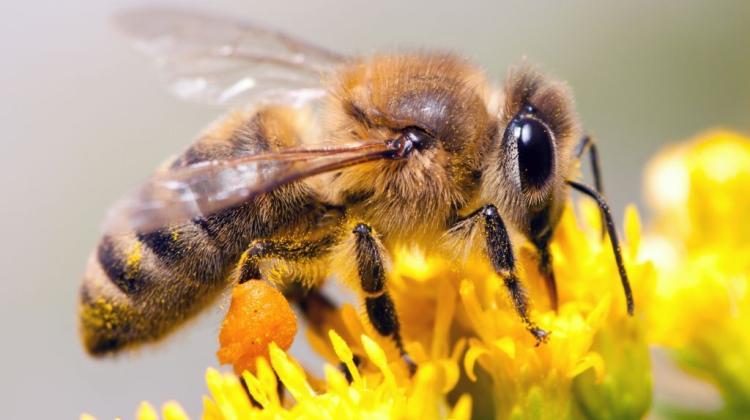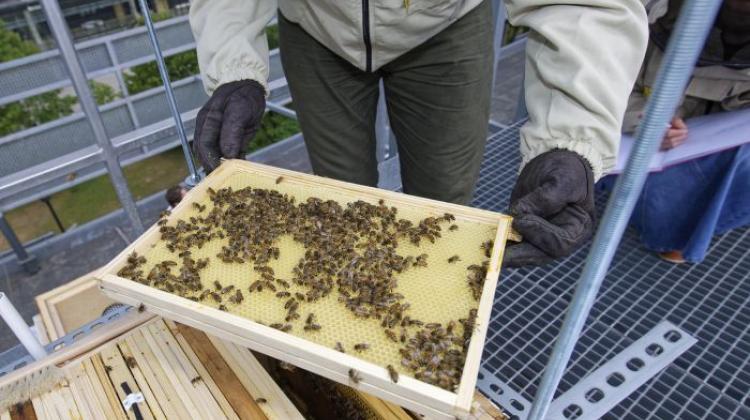A researcher from Lublin throws the gauntlet down to bee diseases
 Photo: Fotolia
Photo: Fotolia
A researcher from Lublin throws the gauntlet down to bee diseases. A probiotic and a substance that helps to combat one of the diseases most frequently affecting bees are the results of several years of research conducted by Dr. Aneta Ptaszyńska from the Maria Curie-Skłodowska University in Lublin.
Nosemosis is one of the most common diseases that affect bees. It is caused by fungi of the genus Nosema. They attack the intestinal epithelium, as a result of which these insects are malnourished and weakened, and therefore more susceptible to other diseases. Although this disease causes large losses in beehives, currently there is no effective and safe method of treatment. Antibiotics based on fumagiline may be used to inhibit the development of nosemosis, but the substance has been completely banned in Europe due to its harmfulness.
"When I started searching for a substance that would help bees to fight this disease, it turned out that I would also have to deal with basic research" - says Dr. Aneta Ptaszyńska from the Maria Curie-Skłodowska University. "It turns out that although this disease is very common among bees, it is not fully understood".
The researcher explains that nosemosis is caused by two species of fungi - Nosema apis and Nosema ceranae. "The first of them has been present in our country for over a hundred years and it is quite well known. The second one came to Poland from Asia quite recently, about 20 years ago, and it is the one that causes the more serious disease of bees".
The preparation that helps to fight nosemosis has been created by a team, which - in addition to Dr. Ptaszyńska - also included researchers from the University of Life Sciences in Lublin and the Jagiellonian University. It contains natural substances: plant extracts from the so-called adaptogenic plants. "Adaptogenic plants increase the body`s resistance: when we are sick, they mobilize our immune system to fight the disease" - explains the researcher.
"There are a lot of adaptogenic plant-based preparations for humans on the market. But the big surprise was that they also had a positive effect on bees" - says Dr. Ptaszyńska.
As it turned out, after the administration of appropriate extracts, the value of a key enzyme for immune system reaction increased in bees. "Bees are more resistant and can effectively fight the disease" - says the researcher.
During the attempts to find a substance to combats nosemosis, another issue has come to the foreground. Because this disease affects the intestines of bees, causing the disintegration of the epithelial cells of the organ - the question arose how to protect the intestines themselves against the effects of fungi. Ultimately, the scientists focused on probiotics.
"We are talking about special probiotics designed specifically for bees" - notes Dr. Ptaszyńska. Some of the tested probiotics had a very bad effect on insects: they would deregulate the functioning of their intestines, which allowed the disease progress faster. Scientists managed to solve this problem by isolating bacteria strains from healthy bees and using them as the basis for the new probiotic.
Dr. Ptaszyńska recalls that in both cases the biggest challenge was working with live bees. "They are very nice and beautiful creatures, but they do sting" - the researcher laughs. "Meanwhile, we wanted to test the substance on bees, because it could work differently in a test tube, and differently in a living organism. It was a technical challenge: first we had to administer test substances, then take samples of haemolymph. Naturally, the bees were not too happy about it, which made things even harder, because after receiving the preparations they were very agitated and it was difficult to control them".
A company that produces veterinary medicines expressed interest in both ideas. The preparation supporting nosemosis treatment is expected to be marketed in the near future. The probiotic for bees awaits a patent decision.
Although the work on both preparations is slowly coming to an end, Dr. Ptaszyńska is still researching new substances. "Nature abhors a vacuum - even if we find an effective drug for a given disease, after some time the pathogen will become resistant to it" - she explains.
"It is also worth noting that today`s environment is very unfriendly for bees, for example due to spraying or monocultures in agriculture. These activities weaken the bees - that`s why we have to continue to invent new preparations" - she adds.
For her work on the two preparations, Dr. Ptaszyńska received the main prize in the 9th edition of the competition "Innovation is a woman" that promotes women`s achievements in the research and development sector. She will have the opportunity to present her inventions at iENA Nuremberg 2018 - International Trade Fair Ideas - Inventions - New Products.
PAP - Science in Poland
author: Katarzyna Florencka
kflo/ zan/ kap/
tr. RL
Przed dodaniem komentarza prosimy o zapoznanie z Regulaminem forum serwisu Nauka w Polsce.



